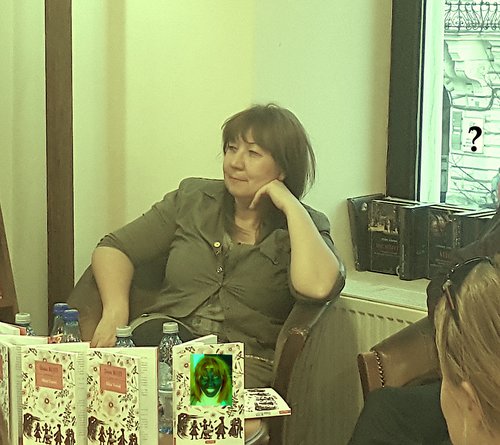
We are surely heading towards a common language, which will also represent the tongue of literature.
Readers are getting fewer and fewer and, obviously, the interest in the story has decreased. The world no longer wants an epic built according to the classic canon, but loves fragmentary, thematic reading, usually written in a language that allows for a quick connection.
However, besides these, there is also a psychological context that we cannot omit. We live in a megalomaniac era. Excessive advertising, the need for self-promotion turned disease, fake news, as well as the unanimous desire to interact with the "actor" of a game – all relate to the creative area of any person willing to participate intensely to the life of the city. Alternatively, precisely because they are generalized, they logically lead to the point where the author becomes anonymous, and his/her work is merely a part of an endless story. Books will no longer be sold, they will be placed together in a virtual library where people will follow a word, which will subsequently lead them to the delightful core of the great text. No name, no story, no art movement... These things are obviously outdated. In the near future, people will search for words, themes, maybe ideas that will usher them into a hypertext, in the middle of a phrase or on a page where they will enjoy reading a bit of Tolstoy without even knowing his name or the title of the novel!
Moreover, when the author is anonymous, the battles between writers will finally cease and mediocrity will be curbed. In fact, social networks (like Facebook) predict this future, which is not very distant. Whenever you feel like reading a bit on exotic holidays, for example, you only need to press search. Through meaningless and extravagant notes, you will undoubtedly also find literature... and a profound lack of interest concerning the author.
I honestly think it will no longer matter if some of the writers are robots, let’s say. To me, that’s a natural step towards the evolution of things. Essentially, writing is a refined pleasure. It is built on personal joy and then you find yourself gradually overwhelmed by the hope of moving the souls of strangers. If things happen the other way around, then writing becomes similar to the work of a mine digger serving a life sentence.
I think Nietzsche was right when he said that at the end of our current civilization, all people will be creating. I also think we’ve reached that ending where the mankind feels the need to create en masse almost, and literature ranks first in the top of the most sought-after arts. The story no longer matters, and neither does the stunning nature of literature. The act itself has become essential, the tale of ourselves, shared on social networks, in the newspapers’ footers, only in those places where you can meet your readers. We have already risen to those Nietzschean times of celebration, and when the author will no longer matter, literature will reach the stage of perfection. I believe in this natural evolution of the literary act.
Currently there’s a hunger for affirming oneself, an anger not so much related to writing, but to an assertion in writing, which indicates a crisis. Not to mention the rhetoric of social groups, the epigonism and other forms of exacerbated aspiration! Mass mimicry represents the clearest indication of the anomaly before an explosion. When the dust settles, the moment of searching by keyword will arrive.